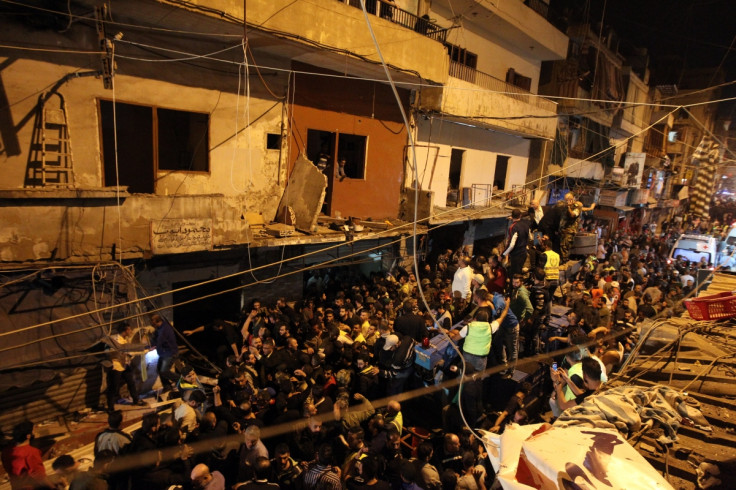Beirut: Isis claims responsibility for twin blasts killing dozens and wounding hundreds

The Islamic State (IS) has claimed responsibility for two suicide bomb attacks which killed 43 people in the Lebanese capital's Shia-majority district of Borj al-Barajneh. More than 240 people were also wounded in southern Beirut, as two bombers blew themselves up within five minutes and 150 metres (490 feet) of one another.
IS claimed on social media that it was behind Beirut's deadliest bombing in 25 years, and said that the group's objective was to kill Shia Muslims, but there has been no independent confirmation. Like many of Beirut's south, the residential area of Borj al-Barajneh is a stronghold of the Iran-backed Hezbollah movement. The group - a staunch ally of Syrian President Bashar al-Assad - is increasing its involvement in the civil war across the border, which is now in its fourth year.
Lebanese Prime Minister, Tammam Salam said: "We condemn this cowardly criminal act that can never be justified, and we call on the Lebanese to be more watchful and united against strife."
The attackers detonated their explosives at 6:00pm local time (4:00pm GMT) on 12 November. One bomber blew himself up outside a Shia mosque while another blast took place near a bakery, just yards from a hospital. The body of a third suicide bomber was located nearby. He is reported to have been killed before he had time to detonate his own vest. IS said the terrorists were two Palestinians and a Syrian.
"I'd just arrived at the shops when the blast went off. I carried four bodies with my own hands, three women and a man, a friend of mine," said one witness to a local television station. "There were bodies on the ground, on cars, on motorcycles," another witness told the Guardian. "On the floor there were bodies, flesh fragments, heads and feet."
Hezbollah has threatened a "long war" against its enemies. "They targeted civilians, worshippers, women and the elderly," Bilal Farhat, an MP for the group told AP. It only targeted those innocent people. This is a Satanic terrorist act, carried out by apostates".
Hezbollah's bastion of southern Beirut saw a spate of deadly suicide explosions in 2013 and 2014, with al-Qaeda affiliates mostly claiming responsibility for those attacks in retaliation to Hezbollah's intervention in Syria to support Assad.
© Copyright IBTimes 2025. All rights reserved.




















